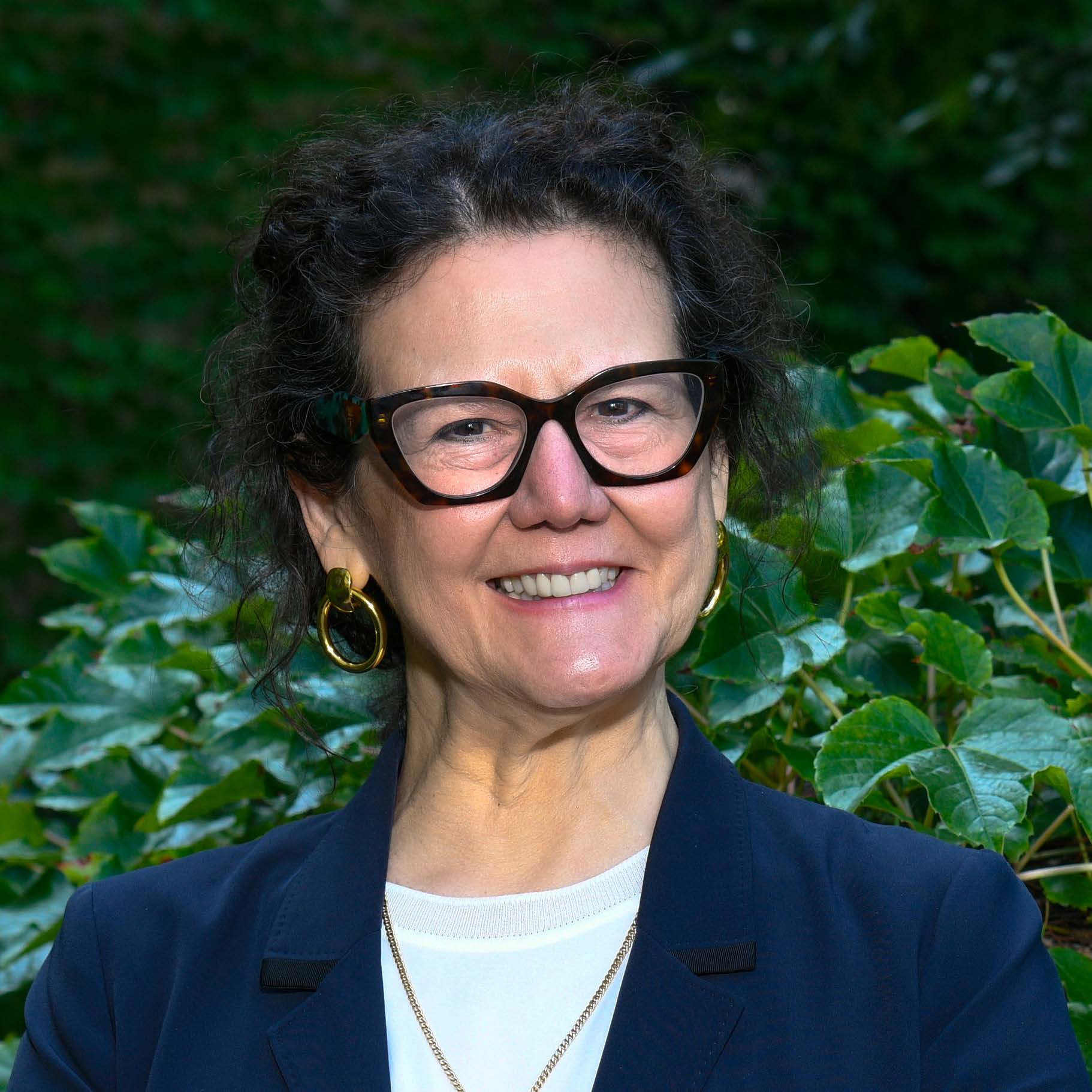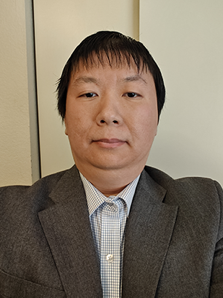Spring 2026 Seminar Series
Seminars are Wednesdays at 4:00 p.m. in the Larrañaga Engineering Auditorium, Centennial Engineering Center unless otherwise noted, and are sponsored by CBE, BME, and NSME. Topical seminars are scheduled throughout the semester and can be used for seminar credit.
2026

March 2 and 3, 2026
Vision Seminar: Shaping and Steering a Shared Path Forward: A Preliminary Blueprint
Research Seminar: Flow-Induced Reorganization and Rheology of Amphiphilic Molecular Assemblies
Radhakrishna ‘Suresh’ Sureshkumar
March 2nd, 2026
Vision Seminar + Q&A
Shaping and Steering a Shared Path Forward: A Preliminary Blueprint
Farris Student Lounge, Room 1000
From 2pm-3pm
Abstract: A people-centric leadership vision, grounded in a “Convene, Converse, and Complement” philosophy, is proposed to foster a collaborative environment where shared ownership drives success. This blueprint serves as a preliminary trajectory, to be evaluated and refined through deep immersion in the department’s unique culture and continued commitment to an inclusive climate that leverages the wealth of diverse faculty expertise. Addressing the 30-year evolution of Chemical and Biomedical Engineering careers, the framework anticipates the challenges and opportunities of rapid AI adoption by developing “T-shaped professionals.” Such graduates will blend rigorous first-principles thinking as well as epistemic and ethical discernment with the AI fluency and occupational versatility required for lifelong success.
Elevating CBE’s research footprint and tackling “Grand Challenge” problems necessitate continued investment in nimble, multidisciplinary brain trusts rooted in strategic partnerships with Sandia National Laboratories, Los Alamos National Laboratory, and the UNM School of Medicine. By integrating departmental missions with interdisciplinary graduate programs in Nanoscience & Microsystems Engineering (NSME) and Biomedical Engineering (BME) as well as collaborating with crosscutting centers like the UNM Center for Advanced Research Computing (CARC), the department is positioned to pioneer technology solutions that promote equitable societal welfare while delivering both regional and global impact. Realizing this vision requires administrative processes defined by transparency, accountability, and fiscal responsibility.
March 3rd, 2026
Research Seminar
Flow-Induced Reorganization and Rheology of Amphiphilic Molecular Assemblies
Farris Student Lounge, Room 1000
From 2pm-3pm
Abstract: Amphiphilic molecules—such as surfactants, block copolymers, and lipids—self-assemble into diverse nanostructures when their chemically distinct segments interact selectively with solvents. In aqueous solutions, these assemblies adopt morphologies ranging from spherical micelles and wormlike networks to bilayers, vesicles, and bicontinuous phases. Such structures serve as functional building blocks in applications spanning nanomedicine, catalysis, detergency, and enhanced oil recovery.
A critical yet often overlooked aspect is that, in practice, these morphologies are rarely static (i.e., in thermodynamic equilibrium). Nanomanufacturing processes, structural characterization techniques such as cryogenic transmission electron microscopy, and applications like targeted drug delivery all subject amphiphilic assemblies to flow fields that drive their deformation, reorganization, and potential rupture. These structural transformations dramatically alter the rheological (flow) properties of the solution, creating a complex feedback loop between flow, structure, and material behavior.
We employ molecular dynamics simulations to uncover the fundamental relationships linking molecular structure, deformation dynamics, and rheology in model surfactant and copolymer systems. This presentation will highlight key findings from our research, including: (i) resolution of longstanding puzzles such as the non-monotonic viscosity response to salts or cosurfactants; (ii) insights into the formation, structure, and flow properties of nanoparticle-micelle complexes; and (iii) discovery of emergent self-assembly pathways accessible through controlled flow cycling.
Bio: Dr. Sureshkumar is a Distinguished Professor at Syracuse University. He earned his baccalaureate degree in chemical engineering from the Indian Institute of Technology, his MS from Syracuse University, and his PhD from the University of Delaware. Following postdoctoral research at MIT, he joined the faculty of Washington University in St. Louis in 1997, where he was promoted to full Professor in 2006. He later served as the Chair of the Department of Biomedical and Chemical Engineering at Syracuse University from January 2010 to May 2019. His research and teaching focus on the intersections of fluid dynamics, soft matter physics, and computational modeling. To date, he has mentored 23 PhD students, 4 MS graduates, 8 postdoctoral scholars, and 20 undergraduate researchers.

February 23 and 24, 2026
Paste-like Biomaterials for Traumatic Brain Injury and Cartilage Repair
Michael Detamore
February 23rd, 2026
Vision Seminar + Q&A
Farris Student Lounge, Room 1000
From 2pm-3pm
February 24th, 2026
Research Seminar
Farris Student Lounge, Room 1000
From 2pm-3pm
Abstract: Bioinks for bioprinting and injectable biomaterials share a common thread in fluid mechanics (rheology) in that the flow properties of the material are crucial to successful application. Beyond shear-thinning behavior, properties including yield stress and storage modulus recovery are important, and speak to the ‘paste-like’ quality of the material. Two applications in regenerative medicine will be highlighted: traumatic brain injury and cartilage injury.
In severe traumatic brain injuries, often a portion of the skull is surgically removed to relieve pressure from the brain swelling, but a 2nd surgery is required to fill that gap in the skull. We have proposed a paste-like biomaterial that could potentially eliminate the 2nd surgery. Our goal is to implant the biomaterial at the time of the original surgery, to be crosslinked to stay in place, flexible to allow the brain to swell, deliver anti-inflammatory drugs locally to the brain, and then transition into bone over time. Initial studies with bone regeneration and drug delivery have shown promise.
In cartilage injury, oftentimes the defects are irregularly-shaped and would benefit from an injectable material capable of crosslinking into a hydrogel. Our team has developed materials based on cartilage matrix that possess a paste-like behavior prior to crosslinking, transitioning into high-stiffness gels after crosslinking, and with the advantage of potential bioactivity to induce cartilage regeneration of a patient’s own bone marrow-derived stem cells. More recent developments have identified promising peptides that may possess desired bioactivity without the need for donor tissues.
The injectable biomaterials in these vastly different clinical applications have gleaned lessons in rheology from the bioink field, which ultimately may facilitate the translation of these technologies to the clinic to improve patient quality of life.
Bio: Michael Detamore is a Professor of Biomedical & Chemical Engineering at Colorado State University. He earned his B.S. in chemical engineering from the University of Colorado and his Ph.D. in bioengineering from Rice University. Prior to moving to CSU, he served for 8 years as the Founding Director, Professor, and Stephenson Chair #1 of the Stephenson School of Biomedical Engineering at the University of Oklahoma, and spent 12 years at the University of Kansas as a professor in the Department of Chemical & Petroleum Engineering.
He is a Senior Member of the National Academy of Inventors, a Fulbright Scholar (Ireland 2011), and a Fellow of the American Institute of Medical and Biological Engineering and the Biomedical Engineering Society. His primary research interest is translational regenerative medicine, with an emphasis on bioactive biomaterials. Healthcare applications include temporomandibular joint (TMJ) disorders, tracheal stenosis, cartilage injury, and traumatic brain injury. Collaborative tools to address these applications include regenerative rehabilitation and AI-driven peptide/drug discovery.
He has published ~150 papers, and has 13 issued U.S. patents. From these patents, he co-founded a company that received NIH SBIR funding, and collaborated with an industry partner in securing two other NIH SBIR grants. As principal investigator, he has secured funding of ~$9M, with total collaborative project funding exceeding $26M. He has also given ~100 invited lectures around the world, including in the United States, Italy, Switzerland, Scotland, Ireland, Greece, the Netherlands, Poland, India, the United Arab Emirates, and Japan. In addition to his research, he enjoys teaching, has served as an ABET accreditation program evaluator, and has won numerous teaching awards.

February 18, 2026
Keynote Address: Design and Control of Biomimetic Materials
Monica Olvera de la Cruz
4:00 p.m., Larrañaga Engineering Auditorium
Abstract: Both biological and artificial biomimetic systems rely on broken symmetries to transmit signals and initiate actuation. We have shown how elasticity, hydrodynamics, and electrostatic interactions break symmetries to induce flow in membranes and in confinement. Here, we describe autonomous mechanisms of actuation by leveraging these interactions, whose coupling becomes increasingly strong at the nanoscale, to demonstrate self-sustained motion driven by surface charge distributions and ionic fluxes in catalytic elastic membranes and in capillaries mimicking ion transport in neurons. Our models capture non-local responses in complex electrolytes that can be used to describe biological functions and design biomimetic devices, including materials with brain-like functions.
Bio: Monica Olvera de la Cruz obtained her Ph.D. in Physics from Cambridge University. She is Professor of Materials Science and Engineering, Chemistry, and Physics and Astronomy, and director of the Center for Computation and Theory of Soft Materials at Northwestern University. She has developed theoretical models to determine the thermodynamics, statistics, and dynamics of soft materials. She is a member of the US National Academy of Science and the recipient of various prizes and awards including the Polymer Physics prize of the American Physical Society and the Cozzarelli Prize of PNAS. She is a member of the Gordon Research Conferences Board of Trustees and editor of PNAS.

February 11, 2026
Immune Dysregulation in Hypoxic Pulmonary Hypertension
Laura Gonzalez Bosc, UNM
4:00 p.m., Larrañaga Engineering Auditorium
Abstract: Group 3 pulmonary hypertension (PH) is defined by the World Health Organization as PH that results from chronic hypoxia (CH) and/or lung diseases, including chronic obstructive pulmonary disease (COPD), sleep apnea, and high-altitude exposure. We have previously demonstrated the important contributions of the inflammatory response, specifically CD4 T helper 17 (Th17) cells, to CH-induced PH. We reported that CH (PB = 380 mmHg) reduced the suppressive capacity of anti-inflammatory T regulatory cells (Tregs) and increased T helper 17 (Th17) cells in the mouse spleen. Additionally, in the same model, we identified a subset of CD4+ T cells of the Treg lineage, termed exTregs, that express Th17 markers that emerge following CH. Furthermore, collagen type V (Col V), a protein known to elicit antigenic self-responses, is upregulated in the lungs following CH exposure, and CH-exposed mice develop IL-17-mediated Col V immune reactivity and have higher levels of Col V-reactive exTregs in the spleen. CH-induced PH is attenuated in mice in which immune tolerance to Col V was induced by mucosal Col V exposure or intravenous administration of Col V-loaded PLGA (poly lactic-co-glycolic acid) nanoparticles, suggesting that Col V-reactive exTreg-Th17 cells contribute to disease pathogenesis.
Bio: Laura V. Gonzalez Bosc joined the UNM Vascular Physiology Group as a faculty member in 2004. Her research focuses on the molecular and inflammatory mechanisms that drive pulmonary hypertension and vascular remodeling under hypoxic conditions. She has made key contributions to understanding how nuclear factor of activated T cells (NFAT) signaling, oxidative stress, inflammatory and metabolic pathways regulate vascular smooth muscle function, proliferation, and hypertrophy under both chronic and intermittent hypoxia.
She recently secured funding from the National Institutes of Health (NIH) to investigate the role of self-reactive Th17 inflammatory cells in the pathogenesis of hypoxic pulmonary hypertension.
She has consistently contributed innovative ideas and experimental approaches to interdisciplinary research teams, for example, in collaboration with Drs. Nancy Kanagy and Jay Naik demonstrated that hydrogen sulfide (H₂S) is produced by and acts on vascular endothelial cells to promote vasodilation, and that intermittent hypoxia impairs H₂S signaling. Her discoveries have advanced the understanding of cardiovascular disease progression and could open new avenues for therapeutic strategies.

February 4, 2026
Telescoping the Translational Pipeline: Opportunities for Innovation in Cancer Research
Sarah Adams, UNM
4:00 p.m., Larrañaga Engineering Auditorium
Abstract: Cancer clinical trials have classically been designed to test cytotoxic drugs based on tumor-intrinsic effects. Advances in our understanding of tumor biology demonstrate a significant role for the tumor microenvironment in disease outcomes as well as treatment response. Leveraging effects of cancer drugs on conditions in the tumor microenvironment is expected to enhance treatment regimens, but these strategies require a new paradigm for drug development and clinical translation. This talk will focus on opportunities for interdisciplinary collaboration to design novel strategies for drug screening, preclinical modeling, and clinical translation of cancer drugs.
Bio: Sarah Adams, MD, Professor, Division of Gynecologic Oncology. Dr. Adams graduated from University of Chicago Pritzker School of Medicine where she also completed her OB-GYN residency. Following subspecialty fellowship training in gynecologic oncology at the University of Pennsylvania, she joined the faculty at Penn. Dr. Adams was recruited to the University of New Mexico in 2012 where she maintains an active clinical practice and leads a translational research lab focused on ovarian cancer immunology. Dr. Adams also serves as the Associate Director of Translational Research and co-leads the Cancer Therapeutics Research Program at the UNM Cancer Center. At a national level, she oversees programs designed to support clinician scientists as the founder and co-director of the SGO/GOG-F BRIDGES Research Initiative and she is the inaugural dean of the Department of Defense Ovarian Cancer Clinical Trials Academy.

January 28, 2026
Patterned Biomaterials: New Tools to Mimic, Quantify, and Understand Disease Mechanisms
Jouha Min, University of Michigan, Ann Arbor
4:00 p.m., Larrañaga Engineering Auditorium
Abstract: Infections are a significant risk to patients who receive medical implants, and can often lead to implant failure, tissue necrosis, and even amputation. So far, although various surface modification approaches have been proposed for prevention and treatment of microbial biofilms on indwelling medical devices, most are too expensive/complicated to fabricate, unscalable, or limited in durability for clinical use. In this talk, I will present two complementary research efforts in biomaterials and biointerface engineering that advance personalized medicine: (i) nature-inspired, nanopatterned coatings with dynamically tunable surface topography for long-term antibacterial activity, and (ii) integrated bioanalytical sensing technologies for the early, point-of-care detection of sepsis. Together, these studies demonstrate how chemical and materials engineering can be tightly integrated with clinical science to enable scalable, translational diagnostics and therapeutic strategies, with the ultimate goal of improving patient outcomes.
Bio: Dr. Jouha Min is an Assistant Professor in the Department of Chemical Engineering at University of Michigan. She received her B.S. in Chemical Engineering from Cornell University in 2010 and her Ph.D. in Chemical Engineering from MIT, where she was advised by Paula Hammond and Richard Braatz. She conducted her postdoctoral research with Ralph Weissleder at Harvard Medical School and Massachusetts General Hospital, where she worked at the interface of engineering, biology, and clinical translation. Dr. Min’s research group applies core principles of chemical and biological engineering—including transport phenomena, reaction kinetics, materials synthesis, and systems-level analysis—to develop new methodologies for probing and controlling material–biology interactions across three-dimensional space and time. Her work aims to establish a quantitative and mechanistic foundation for transformative advances in disease diagnosis, treatment, and prevention. She is the recipient of several honors, including the NSF CAREER Award (2025), the NIH R35 MIRA Award (2025), and the V Foundation V Scholar Award (2023)

January 21, 2026
Oncology-focused translational strategies that integrate clinical data with human 3-D tissue–engineered models
Melissa Herbst-Kralovetz, University of Arizona College of Medicine–Phoenix
4:00 p.m., Larrañaga Engineering Auditorium
Abstract: This seminar highlights oncology-focused translational strategies that integrate clinical data with human 3-D tissue–engineered models to advance women’s reproductive health research. Using the cervicovaginal and endometrial microenvironments as model systems, we will demonstrate how human-relevant platforms enable mechanistic interrogation of host–microbe interactions and cancer-related pathways, supporting bidirectional translation between the bench and bedside. Specifically, this seminar will cover:
- human 3-D modeling of the cervicovaginal microenvironment to study host–microbe and immune–metabolic interactions relevant to disease risk;
- integration of clinical biospecimens and patient metadata to inform experimental design and translational relevance;
- bench-to-bedside and bedside-to-bench examples from HPV and cervical cancer;
- oncology-focused applications leveraging clinical samples and human 3-D systems to elucidate the role of microbiota in endometrial cancer;
- evaluation of commercial and clinical vaginal lubricants and excipients using human-relevant models; and
- assessment of product-induced effects on the vaginal microbiome, epithelial integrity, inflammation, and implications for clinical guidance, product development, and women’s health innovation.
Bio: Dr. Melissa Herbst-Kralovetz is a tenured Professor in the Departments of Basic Medical Sciences and Obstetrics and Gynecology at the University of Arizona College of Medicine–Phoenix and serves as Director of the Women’s Health Research Program and the Translational Women’s Health Research Program. Her nationally recognized research focuses on the microbiome and host-microbe interactions in the female reproductive tract, studying their impact on oncologic, reproductive, and gynecologic health outcomes. In addition, she is passionate about investigating health disparities in underrepresented, understudied and underreported populations in Arizona, specifically Latinas and Native American women. She employs clinical biospecimens, animal models, and pioneered a 3-D human bioreactor system to investigate immunometabolic responses to microbiota throughout the female reproductive tract. Her lab employes cutting edge techniques and integrated multi-omics analyses. She has secured funding from the NIH and leading foundations and has received numerous honors, including the AZBio Researcher of the Year Award (2025), the AJRI, J. Christian Herr Award in reproductive immunology, and the Phoenix Business Journal’s 40 Under 40 award. Her work has been featured in outlets such as NPR and Forbes, reflecting her passion for science communication, entrepreneurship, and advancing innovative solutions to improve women’s health.
2025

December 3, 2025
Advancing multi-scale characterization of nucleic acids: Theory, computation, and design of DNA nanomaterials
William P. Bricker, UNM
4:00 p.m., Larrañaga Engineering Auditorium
Abstract: The Holliday junction motif in nucleic acids is utilized as a building block to create strand crossovers between duplexes of DNA, and repeated use of this motif allows the creation of large-scale wireframe structures in arbitrary 2D and 3D shapes, called DNA origami. In this talk, we investigate the properties of DNA at various scales, including electronic-level properties, sequence effects at the junction level, and overall dynamics of large-scale DNA origami assemblies. Accurate electronic structure calculations of DNA sequences are difficult-to-impossible due to extremely inefficient scaling of quantum chemical calculations as the system size increases. It is shown that a machine learning algorithm based on Euclidean neural networks, where the training data includes accurate electronic structure calculations of smaller fragments of DNA, namely, the relevant base-pair steps, can be utilized to reproduce the electron density of arbitrary DNA sequences to an error of less than 1%. Several future applications of these large-scale machine-learned electron densities are of interest, but require accurate calculation of forces and energies. As an example, accurate energy predictions of large-scale biomolecules could be utilized to predict the binding energetics of ligand-receptor complexes from first principles. At the molecular level, DNA junctions are utilized as the basic building block of DNA origami, but the base sequence effects on these junctions are not well understood. By utilizing classical molecular dynamics simulations, it is shown that changing the core sequence at the junction has a dramatic effect on the isomerization energies and dynamics of the Holliday junction motif. Additionally, higher-order DNA building blocks are being investigated such as DNA six-way junctions (6WJ) which can be incorporated into multi-dimensional DNA origami structures. We show that the isolated 6WJ has an extensive conformational landscape, and experimentally confirm that a square lattice built out of repeated 6WJs will fold. Alternative junctions such as heterochiral DNA junctions, where DNA switches chirality from right- to left-handed, are also being investigated for incorporation into larger DNA nanostructures. Left-handed DNA resists degradation in vivo, making heterochiral DNA an important platform for therapeutic applications. Finally, we will consider bioinspired energy transfer applications, as DNA origami can be utilized as a scaffold for photoactive molecules, with the goal of creating an efficient energy transfer network.
Bio: Prof. William Bricker is an Assistant Professor in the Department of Chemical and Biological Engineering at the University of New Mexico, starting in the Fall of 2019. He received his PhD in Energy, Environmental, and Chemical Engineering at Washington University in St. Louis in 2014, and continued his training as a postdoctoral associate in the Biological Engineering department at MIT from 2015-2019. His current research focuses on attempting to understand structure-to-function relationships in biology by utilizing tools from computational chemistry, with a focus on structural DNA nanotechnology, biological energy transfer, and platforms for therapeutic design.

November 19, 2025
Bioinspired Dynamic Materialization Toward Advanced Materials and Sustainable Manufacturing
Sungjin Kim, UNM
4:00 p.m., Larrañaga Engineering Auditorium
Abstract: A grand challenge in chemical engineering and materials science is to establish chemical processes that achieve both advanced materials performance and benchmarks for sustainability, energy/resource efficiency, and benefits to human and environmental health. My group's research initiative addresses these goals by investigating dynamic, bioinspired macromolecular materials for energy-efficient manufacturing, high-value applications, and critical resource recovery, based on mechanistic studies of organic, inorganic, and organic-inorganic solidification. Our work integrates advances from dynamic polymer chemistry, bioinspired mineralization, and additive manufacturing, enabling new strategies for polymer upcycling, CO₂ mineralization, and synthesis of functional organic-inorganic hybrids for energy, environmental, and healthcare applications. In this presentation, I will discuss how dynamic bond chemistries are employed to upcycle polymer waste into dynamic covalent networks that exhibit improved material properties and reprocessability. I will also discuss how controlled crosslinking through vat photopolymerization 3D printing of hybrid preceramic polymers can be employed to enhance ceramic yield and the quantitative correlation between the crosslinking and ceramic yield. Finally, I will discuss how organic-inorganic interaction engineering supports scalable CO₂ mineralization, converting undesired carbonaceous gases into higher-value materials with controlled size, morphology, and properties. The resulting advances provide a scientific and technological foundation for transformative materials manufacturing.
Bio: Dr. Sungjin Kim is an Assistant Professor in the Department of Chemical and Biological Engineering at UNM. He obtained his Ph.D. in Materials Science and Engineering from MIT as a Samsung Scholarship Fellow. He holds M.S. and B.S. degrees in Materials Science and Engineering from KAIST. He also studied at Georgia Tech as an undergraduate exchange student. Prior to joining UNM, he worked at ORNL as a research staff in Manufacturing Science Division, and before that, a postdoctoral scholar at Chemical Science Division. Before beginning his doctoral studies at MIT, he worked as a research engineer at SKC Co., Ltd., SK Group in South Korea. His overarching research interests include energy-efficient, bioinspired polymeric materials design and manufacturing strategies for better sustainability and healthcare. His research involves investigating physicochemistry of dynamic crosslinking, bioinspired mineralization and organic-inorganic interaction, and using these principles to produce desired 3D structures for industrial, environmental, and biomedical applications through additive manufacturing.

November 12, 2025
Organic Electronics: From OLEDs and Photovoltaics to Neuromorphic Computing
Samson A. Jenekhe, University of Washington
4:00 p.m., Larrañaga Engineering Auditorium
Abstract: Organic/polymer semiconductors have enabled a range of new technologies. In the case of organic light-emitting diodes (OLEDs), the materials and devices have reached commercial applications in full-color displays in smart phones and televisions and lighting. For solar cells or photovoltaics, advances in materials and devices have also substantially addressed the twin fundamental challenges of large-binding-energy excitons and narrow absorption bands in organic semiconductors. In particular, the journey from fullerene-based devices to non-fullerene acceptor (NFA)-based polymer solar cells has been long, challenging, and rewarding for the field of organic photovoltaics (OPVs). Recent advances in non-fullerene acceptor materials, donor copolymers and blend devices have pushed the OPV device efficiency past 20 %. Our recent advances in organic electrochemical transistors (OECTs) promise applications in bioelectronics and neuromorphic computing.
Bio: Samson A. Jenekhe holds the Frank and Julie Jungers Chair in Engineering, Professor of Chemical Engineering, and Professor of Chemistry at the University of Washington. He received his B.S. from Michigan Technological University, and his M.S. in chemical engineering, M.A. in Philosophy, and Ph.D. in chemical engineering (1985) from the University of Minnesota. Jenekhe’s research contributions are in the chemistry, physics, and engineering device applications of organic/polymer semiconductors, including materials synthesis, photophysics, charge transport, organic light-emitting diodes, organic electronics, and organic photovoltaics. He is the co-author of over 330 research articles in journals and 28 granted US patents. He received the 2014 Charles M. A. Stine Award for Excellence in Materials Science and Engineering from the American Institute of Chemical Engineers (AIChE). For his pioneering research on the photophysics and charge transport properties of semiconducting polymers, he was awarded the 2021 Polymer Physics Prize from the American Physical Society. He received the 2025 de Gennes Prize in Materials Chemistry from the Royal Society of Chemistry (UK). Jenekhe is a member of the National Academy of Engineering and a Fellow of the American Physical Society, the American Association for the Advancement of Science, and the Royal Society of Chemistry.

November 5, 2025
Toward Capturing Sex-Specificity in Human Microphysiological Systems
Mark J. Mondrinos, Tulane University
4:00 p.m., Larrañaga Engineering Auditorium
Abstract: Sex-specific cell culture methods and microphysiological systems (MPS) can enhance our understanding of how biological sex influences health and disease. Our laboratory has demonstrated baseline differences between female (XX) and male (XY) cells in numerous 2D culture and MPS bioassays when a common cell culture medium containing fetal bovine serum (FBS) is used for both sexes. Next, we began developing sex-specific culture methods based on culturing female (XX) cells with estradiol (E2) and male (XY) cells with dihydrotestosterone (DHT), the concentrations of which can be tuned to yield sex-equivalent baselines in select 2D and MPS bioassays. While we are actively developing more complex sex-specific hormone mixtures, including the addition of progesterone (P4), this talk will emphasize the application of our first-generation culture methods to create sex-specific MPS models of diabetic retinopathy (DR) and lung cancers. E2 protected against features of DR pathophysiology induced by diabetic culture conditions, such as increased barrier permeability and basement membrane thickening, in XX but not XY models. DHT failed to protect against induced features of DR in both XX and XY models. These results are compatible with clinical observations of increased overall incidence and severity in male DR patients and decreased incidence in premenopausal women with higher levels of E2. The talk will conclude with presentation of early results indicating that E2 significantly reduces cisplatin cytotoxicity in XX and XY models of non-small cell lung cancers, thereby providing a platform for interrogation of the hypothesis that estrogen drives lung cancer progression. Ongoing refinement of sex-specific MPS disease models will provide needed venues for exploring modulation of hormone signaling as a component of sex-based precision therapies that address specific aspects of pathophysiology in diabetic retinopathy, lung cancer, and other diseases.
Bio: Mark J. Mondrinos earned undergraduate degrees in Biochemistry and Chemical Engineering from Florida State University and the FAMU-FSU College of Engineering. He conducted pioneering work in lung tissue engineering while completing his PhD in Biomedical Engineering at Drexel University. Dr. Mondrinos was a postdoctoral fellow at Temple University School of Medicine, where he studied acute lung inflammation, then at the University of Pennsylvania, where he developed various organ chip technologies and microphysiological systems (MPS). He is now an Assistant Professor of Biomedical Engineering at Tulane University and a research project leader in the Tulane Center of Excellence in Sex-based Precision Medicine. His group at Tulane is engineering sex-specific human cell culture methods and MPS disease models. Their work has garnered awards including the Tulane Early Achievement in Research Faculty Award, the NSF CAREER Award, and the BMES Young Innovator of Cellular and Molecular Bioengineering Award. Dr. Mondrinos teaches courses on the engineering principles of human physiology. His laboratory is committed to public education about sex-based biology, engineering, and medicine through scientific outreach via K-12 STEM programs at Tulane and in the broader New Orleans community.
October 29, 2025
Mandatory Safety Training
Fernando Garzon and Geoff Courtin
4:00 p.m., Larrañaga Engineering Auditorium

October 22, 2025
Emergence of Granular Dynamics in Collections of Robotic Microrollers
James Gilchrist, Lehigh University
4:00 p.m., Larrañaga Engineering Auditorium
Abstract: The field of miniaturized robots is advancing quickly for the purpose of developing noninvasive medical procedures and exploration of geometrically complex systems. This experimental research explores the collective response of field-responsive microrollers. These microrollers are manipulated by rotating magnets that generate torque at the particle-scale and influence magnetic particle-particle attraction that influence friction in the system. Our lab has developed techniques to make large quantities of these microrollers and we study their bulk properties. The resulting kinematics are swarms of microrollers whose motion behave as granular flows that readily flow uphill with a negative angle of repose, driven by a negative coefficient of friction, and generate uncommon collective behavior that can only be understood in the context of granular dynamics. Several novel applications will be demonstrated that are achieved through their collective granular-like behavior.
Bio: James Gilchrist is the Ruth H. and Sam Madrid Professor of Chemical and Biomolecular Engineering at Lehigh University. He oversees the Laboratory for Particle Mixing and Self-Organization, where he and his team investigate rheology and assembly of colloidal and granular systems. Researchers in the lab identify prototypical complex systems including suspension transport in chaotic flows, suspension rheology and microstructure, convective deposition, and functional coatings. Gilchrist received his B.S. in Chemical Engineering from Washington University in St. Louis and Ph.D. from Northwestern University. Prior to joining the faculty of Lehigh University in 2004, he was a postdoctoral research associate in the Department of Materials Science and Engineering at University of Illinois. Gilchrist was a visiting professor in the Department of Chemical Engineering at the California Institute of Technology for the 2011-2012 academic year and a Visiting Professorial Fellow at University of New South Wales in 2016. In 2022, Gilchrist was elected a Fellow of the American Institute of Chemical Engineers.

October 15, 2025
Chronic Low Dose Exposures of Cadmium and Hyperglycemia Drives Dysfunctional Hepatic Mitochondrial Biogenesis and Dynamics
Rahul Kumar
4:00-4:30 p.m., Larrañaga Engineering Auditorium
Abstract: Metabolic (Dysfunction)-Associated Fatty Liver Disease (MAFLD) is a leading cause of chronic liver disease (CLD) and mortality worldwide. In the southwestern United States, particularly New Mexico (NM), CLD rates are the highest in the nation (36.4/100,000 in 2022), particularly among the Hispanic and Native American populations for unknown reasons. We hypothesize that environmental exposures (e.g., heavy metals) exacerbate liver dysfunction in individuals with chronic metabolic disturbances including obesity, type II diabetes. Cadmium (Cd), a toxic environmental metal, is associated with obesity, diabetes, and MAFLD, but its chronic effects on hepatic oxidative and mitochondrial homeostasis remain poorly defined. Using chronic low-dose Cd exposure (CLEC) and hyperglycemic (15 mM) conditions for 24 weeks in hepatocyte models (HepG2 and HUH7), we investigated Cd-induced oxidative and mitochondrial injury. CLEC models revealed (i) increased sorafenib-induced mitotoxicity under galactose conditions, (ii) elevated superoxide production amplified by hyperglycemia, (iii) reduced mitochondrial density, altered ΔΨm, and morphological disruption, and (iv) impaired oxygen consumption rate (OCR) and ATP production with unchanged spare respiratory capacity. Chronic Cd and hyperglycemia further caused transcriptional and translational alterations in antioxidant genes and mitochondrial dynamics proteins (Drp1, MFN2, Tomm20), increasing cellular vulnerability. Overall, these findings demonstrate that chronic Cd exposure disrupts hepatic mitochondrial homeostasis and OXPHOS energy cycling, a core mechanism of MAFLD pathogenesis. Our results emphasize that heavy metal pollutants may accelerate metabolic and bioenergetic dysfunction in type II diabetics and obese individuals, highlighting an urgent need for targeted investigation in these at-risk groups.
Bio: Rahul Kumar is a graduate student currently pursuing his Ph.D. in Biomedical Engineering in the lab of Dr. Rama Gullapalli from the department of Pathology. Rahul holds a bachelor’s degree in Biotechnology from Maharshi Dayanand University, India and went on to complete his Master’s (M. Tech) in Bioscience and Bioengineering from the Indian Institute of Technology, Jodhpur, India.
His current doctoral research here at UNM focuses on the impact of environmental pollutants such as heavy metals exposures and microplastic of the liver. His work integrates toxicology, liver biology, and metabolic dysfunction, aiming to understand how environmental pollutants contribute to insulin resistance and liver disease.

Investigating Hydrothermally Stable Single Atom Copper Catalysts for Upgrading Ethanol to Sustainable Aviation Fuel
Jesse Larence
4:30-5:00 p.m., Larrañaga Engineering Auditorium
Abstract: The aviation industry is increasingly pursuing alcohol-to-jet (ATJ) fuel technologies as a viable strategy to reduce carbon emissions and transition toward sustainable fuels. Among various catalytic pathways, upgrading ethanol to sustainable aviation fuel (SAF) has garnered significant interest. Metallic copper (Cu) is a promising catalyst for this reaction but often suffers from deactivation due to sintering and carbon deposition arising from side reactions during ethanol conversion. In contrast, single atom Cu catalysts have demonstrated exceptional thermal stability, up to 800 °C in air, improving resistance to both sintering and coking, though their catalytic behavior in these reactions remains less understood. In this presentation, we employ a facile sol-gel synthesis to achieve a high loading (5 wt%) of bulk single atom Cu stabilized on CeO₂. This system is used to investigate the sintering and structural evolution of ionic Cu species under hydrothermal aging conditions that mimic the ethanol upgrading reaction involving H₂ and steam. A combination of transmission electron microscopy (TEM), CO diffuse reflectance infrared Fourier transform spectroscopy (CO-DRIFTS), X-ray absorption spectroscopy (XAS), and complementary characterization methods were used to investigate the coordination environment and stability of Cu sites under both simulated and real reaction conditions.
Bio: Jesse Larence is a third-year Ph.D. student in Chemical Engineering at the University of New Mexico. He conducts research in Professor Abhaya Datye’s heterogeneous catalysis group, focusing on the development and characterization of single-atom catalysts to enhance stability in biomass upgrading and ethylene purification processes.

October 8, 2025
Lignin conversion to performance-advantaged fuels, chemicals, and polymers
Gregg T. Beckham, NREL
4:00 p.m., Larrañaga Engineering Auditorium
Abstract: Terrestrial plants harbor renewable carbon resources in their cell walls that can directly contribute to decarbonization of the transportation and materials sectors, but the heterogeneous, aromatic lignin polymer found in plants has long obstructed both natural- and humankind-driven endeavors to deconstruct plant biomass to valuable products. However, viable methods to valorize lignin are essential to ultimately enable second-generation biorefining, given that lignin can comprise up to 40% of the carbon in lignocellulose, but today it is merely burned for low-value heat and power. To this end, this talk will cover our efforts (with many collaborators) to separate the lignin polymer from the plant cell wall and use both chemical and biological catalysis to convert it into molecules and polymers that are either drop-in replacements for products sourced from fossil carbon today or that exhibit performance-advantaged properties relative to petrochemical incumbents. Specifically, we are focused on catalytic oxidation to depolymerize lignin into bio-available intermediates coupled to metabolic engineering approaches that convert mixtures of aromatic compounds to single products, which can find use in performance-advantaged biopolymers. In parallel, we are also developing and scaling methods to remove lignin from the cell wall through reductive catalysis and to selectively conduct hydrodeoxygenation to produce sustainable aviation fuel blendstocks.
Bio: Gregg T. Beckham is a Senior Research Fellow and Group Leader at NREL. He received his PhD in Chemical Engineering at MIT. He works with an interdisciplinary team at NREL on the development of sustainable processes and products in the areas of biomass conversion and plastics recycling and redesign.

October 1, 2025
Neutron Scattering for Science: A Primer
Rex Hjelm, Researcher, New Mexico Consortium
4:00 p.m., Larrañaga Engineering Auditorium
Abstract: Presenting a high level over view of neutron scattering techniques and the relation to facilities available at Oak Ridge National Laboratory with an emphasis of those techniques most closely addressing problems in biological sciences and electro-chemistry.
Bio: Dr. Rex Hjelm is currently at the New Mexico Consortium and at the Earth and Environmental Sciences Division at Los Alamos National Laboratory, where his current work is on fuel cell polymer materials physics, bio-sciences and geophysics. From 2018-2019 he was a “Brain Pool” Fellow of the Korean National Research Foundation working at the Korean Institute for Energy Research on fuel cell ionomer physics. Previous to his present positions Dr. Hjelm was a senior scientist at the Los Alamos National Laboratory, where he was an internationally recognized authority in the uses of scattering in materials structure. He has been presented with six DOE Awards of Excellence in Research for his work in materials science and was awarded Office of Basic Energy Sciences Outstanding Mentor Award. He has 170 published articles and 170 invited presentations in biophysics, physics, materials science, colloids and polymers, geoscience, scattering instrumentation and methods and computer code development. He has authored and edited four major reports in neutron scattering facility instrumentation and neutron scattering instrument design and authored and edited three volumes on composite materials. Dr. Hjelm holds a BSc in genetics (ScL) from the University of California, Berkeley and a Ph.D. in Biochemistry from the Johns Hopkins University. He held NATO and Jane Coffin Childs Postdoctoral Fellowships in the UK in biophysics and a Howard Hughs Fellowship in Biophysics and Medicine at Johns Hopkins. He has held faculty positions in Genetics, Medicinal Chemistry and pharmaceutics at the University of Illinois and in Chemical and Environmental Engineering at the University of California, Riverside.

September 24, 2025
Additive Manufacturing as Prototyping Method for Solid-State Electrochemical Methane Sensors
Lok-kun Tsui, UNM
4:00 p.m., Larrañaga Engineering Auditorium
Abstract: Methane (CH4) emissions from the natural gas industry are a major contributor to global climate change with CH4 having approximately a 25x higher global warming potential compared with CO2. The US has over 300,000 miles of pipeline to transport natural gas from extraction to refining and then eventually to the end user. Much of the infrastructure is also located in rural and economically disadvantaged locations which have limited resources for expensive sensing solutions. There is a need to provide a low cost continuous monitoring solution to mitigate the impact of the natural gas industry, providing early warning of leaks so they can be repaired quickly. In this talk we will present how we used additive manufacturing of ceramics as a rapid prototyping approach for the development of solid-state mixed potential sensors. The sensitivity and selectivity was engineered by electrode composition and selection of low ionic conductivity substrates, which produced sensors with sub-5-ppm limit of detection for CH4. We integrated the sensors with machine learning algorithms for automatic signal deconvolution and an internet-of-things platform for field portable data collection. We then performed field testing to measure the near surface methane concentration from underground pipelines in real world conditions at CSU’s METEC facility. We were able to show that we could quantify the distribution of methane near the emission point with comparable accuracy to sophisticated infrared gas analyzers with our sensor technology. After successfully validating the technology, we demonstrated that we could transition the additive manufacturing process to conventional manufacturing for scale-up production.
Bio: Lok-kun Tsui is a research associate professor with the Center for Micro-Engineered Materials at UNM. He obtained his BS in Physics from James Madison University, and his MS and PhD in Materials Science and Engineering from the University of Virginia. He has been with CMEM since 2015 and has collaborations with Air Force Research Laboratory and Sandia National Laboratories. His research interests are electrochemistry for environmental monitoring, sensors and machine learning, electrodeposition, and additive manufacturing of electronics.

September 17, 2025
Selective Catalytic Transformations of Polyolefins
Aaron Sadow, Ames National Lab and Department of Chemistry, Iowa State University
4:00 p.m., Larrañaga Engineering Auditorium
Abstract: We are investigating catalytic materials and methods that regulate the cleavage of C–H bonds or C–C bonds in polyolefins, to introduce functional groups at selected positions or to create narrow distributions of shorter, partially deconstructed chains. This approach involves the design and synthesis of 3D porous inorganic metal oxide architectures which contain catalytic sites in well-defined positions in the material, along with spectroscopic investigations and theoretical models of polymer adsorption and translocation in the pores. In parallel, we are developing catalytic sites and reactions that break C–C and C–H bonds in aliphatic hydrocarbon polymers. As these catalytic sites are incorporated into 3D architectures and studied in polyolefin deconstruction reactions, our team is developing theoretical, kinetic models and in situ spectroscopic methods for studying the ‘macromolecular’ mechanisms that influence the average chain lengths of products and the dispersity of product distributions.
Such approaches using micro or mesoporous materials can lead to processive catalysis, whereby a polymer chain is adsorbed into the pores of the inorganic oxide and is successively cleaved into smaller fragments without release of the ever-shortening polymer chain. Nanoparticles, responsible for C-C cleavage, localized in the pores at uniform distances from the pore mouth, then cleave polyolefin chains into semi-regular smaller chain lengths. We will present our studies of these architectures and catalytic reactions in the selective deconstruction of polyolefins.
Bio: Currently David C. Henderson Chair of Chemistry and Director of the Institute for Cooperative Upcycling of Plastics (iCOUP), a DOE-BES funded EFRC.

September 10, 2025
Understanding the Flow Behavior of Complex Non-Newtonian Fluids in Curved (Coiled) Tubing
Subhash Shah
4:00 p.m., Larrañaga Engineering Auditorium
Abstract: Coiled Tubing (CT) services are one of the fastest growing oilfield technologies. CT has been widely used in well drilling, wellbore cleanouts, stimulation, logging, perforation, and many other well interventions. The success of a treatment profoundly depends on the proper selection of fluids and their properties. Even though fluids are widely used in all CT services, little attention has been paid to thoroughly evaluate and understand the behavior of complex fluids. In many instances the cause of an unsuccessful treatment is the failure of our understanding the true behavior of fluid.
Fluid flow in CT is significantly different than straight pipe because of coiled tubing curvature and secondary flows it generates. Fluids in CT experience a different level of shear and turbulent intensity. It has been shown that fluids in CT exhibit significantly higher frictional pressure losses (up to 200%), less drag reduction, severe pipe erosion (with slurries), greater fluid degradation due to shear, etc. when compared to straight pipe. These characteristics are dependent on fluid type and concentration, CT size and dimensions, operating parameters such as temperature and pressure, shear rates, pH, salinity, density, and pipe roughness.
The lecture will highlight research findings with several fluids and present appropriate correlations for their proper hydraulics predictions. Case studies of wells fractured using CT will be provided to demonstrate the application of the correlations used in hydraulics calculations.
Bio: Dr. Subhash Shah, Ph.D. is an Emeritus Professor in the Mewbourne School of Petroleum and Geological Engineering at the University of Oklahoma. He retired from OU after serving 22 years as Stephenson Chair Professor and as the Director of OU’s Well Construction Technology Center. He also served for 6 years as Shell Chair Professor and Chief Mentor in the School of Petroleum Technology, Pandit Deendayal Petroleum University, India. Dr. Shah is one of the world leaders in hydraulic fracturing, horizontal/multilateral well completions/stimulation, and coiled tubing technology. He has a distinguished career in the oil and gas industry that spans over 48 years: 18 years with Halliburton as “Distinguished Technical Member” and 30 years in academia/consultant. He is recognized as the Society of Petroleum Engineers “Distinguished Member” and as “Distinguished Lecturer.” He is a recipient of “SPE Completions Optimization and Technology” award. He is a “Fellow” of the American Institute of Chemical Engineers. Dr. Shah is a “Distinguished Alumni” of the College of Engineering and “Alumni Emeritus” of The University of New Mexico.
Dr. Shah holds a B.E. from M.S. University of Baroda, India, and M.S. and Ph.D. from University of New Mexico, USA, all in chemical engineering. His research has resulted in more than 300 technical publications in over 35 international journals. He has written five chapters in technical books and is a co-author of two books.

September 3, 2025
Solar Thermal Energy Storage Technologies for the 21st Century
Kenneth Armijo, Sandia National Laboratories
4:00 p.m., Larrañaga Engineering Auditorium
Abstract: Concentrating solar power (CSP) systems generate solar energy by using mirrors or lenses to concentrate a large area of sunlight, or solar thermal energy, onto a small area. Thermal Energy Storage (TES) systems, which use molten salt, can be used to enhance utilization efficiencies and performance, particularly at high temperatures. The primary advantage of using TES over photovoltaics (PV) and batteries is that as a thermal technology, running a conventional thermal power block, a CSP or Nuclear Energy (NE), small modular reactor (SMR) system can store the heat of solar energy in molten salts or other next generation media, which enables these plants to continue to generate electricity whenever it is needed, whether day or night. TES enhances dispatchability form solar or NE to be a competing form of base-load power with other current energy processes that can have a negative impact on the environment. This technology is also particularly valuable in places where there is already a high penetration of PV because an evening peak is being exacerbated as PV ramps down at sunset. Production potential of solar energy in southwestern states stands apart from the rest of the U.S. where states like New Mexico have the incredible potential for producing solar energy, in addition to other commercial products such as ammonia, hydrogen and fresh water from desalination with this resource. In this presentation, Dr. Kenneth Armijo, will discuss the processes and importance of producing energy from solar and nuclear energy and how TES stands to significantly impact base-load energy production for the U.S. and the world.
Bio: Dr. Kenneth Armijo is a systems engineering staff member and Test Director who leads molten salt, molten alkali metals & controls R&D at the National Solar Thermal Test Facility (NSTTF). His research interests are in alternative energy technologies and sustainability, as they pertain to scientific and technological innovation, business and policy. Dr. Armijo holds a Ph.D. in Mechanical Engineering from the University of California, Berkeley with minors in Energy and Resources, and business credentials in Management of Technology from Berkeley's Haas School of Business. Presently, Dr. Armijo’s research in concentrating solar power (CSP) consists of system design for high-temperature (>720 °C) thermodynamic and commercial R&D systems, employing ternary chloride molten salts and alkali metals (sodium) as the heat transfer fluid. His research has also consisted of falling particles for centralized concentrating solar receivers. He also leads research activities pertaining to solar Stirling Engine applications as well as for solar reactor R&D and high-flux materials characterization. Dr. Armijo also serves as a lead Test Director for high-temperature materials research for power towers and solar furnace investigations.

August 27, 2025
Chemical Engineering as the Connecting Piece: Examples from Nuclear and Agriculture
Catherine Brewer, Professor and Associate Academic Department Head, Chemical & Materials Engineering, New Mexico State University
4:00 p.m., Larrañaga Engineering Auditorium
Abstract: The NuChemE Pipeline project, short for “Evaluating New Materials and Processes for Radioactive Tank Waste Processing: Workforce Development in f-Element Chemistry, Nuclear Chemical Engineering, and Supply Chain Management” is a 3-year, multi-institution grant funded by the Department of Energy’s Office of Environmental Management (DOE-EM). Dr. Brewer will introduce how gadolinium (Gd) can be sourced domestically from coal fly ash and used to stabilize high-level waste in clean-up efforts at Manhattan Project/Cold War uranium and plutonium facilities. The grant includes interdisciplinary research and capacity building for f-element (lanthanide and actinide) separations and supply chain management to support radioactive tank waste management at the Savannah River Site. The education components at NMSU include expansion of the Nuclear Chemical Engineering minor, new courses: CHEM 473 Radiochemistry and CHME 370V Discovery & Uses of Radioactive Materials, and a summer hands-on lab training and travel program.
On the agriculture side, chemical engineering represents the processing part of making value-added products from underutilized biomass. Dr. Brewer will give examples of how her group studies mosquito repellents from plant extracts; chemicals and fibers from hemp wastes; and renewable energy and biochars from forestry biomass.
Bio: Before joining NMSU in 2013, Catherine “Catie” Brewer completed a B.S. in Chemistry at Indiana U. of Pennsylvania, a Ph.D. in Chemical Engineering and Biorenewable Resources & Technology at Iowa State University, and a postdoc at Rice University. She is currently a John Kaichiro & Tome Miyaguchi Nakayama Endowed Professor in Engineering for interdisciplinary research and education. Dr. Brewer served as associate editor for two years and co-editor-in-chief for two years for Renewable & Sustainable Energy Reviews. She has also served as community program chair and other leadership roles in the American Society of Agricultural & Biological Engineers (ASABE). Her research interests include biomass utilization, biochar, soil and water remediation, renewable fuels, sustainable agriculture, and uses of radioisotopes. She teaches introduction to chemical engineering calculations, senior capstone design, and electives related to brewing and nuclear chemical engineering.
